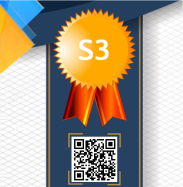APPLICATION OF RADEC LEARNING MODEL TO IMPROVE ELEMENTARY STUDENTS' SCIENCE LITERACY ON HUMAN DIGESTIVE SYSTEM MATERIAL
Abstract
This study aims to determine how science literacy before and after using the RADEC learning model, how the difference in the improvement of science literacy in the class used, namely the experimental class (RADEC model) and the control class (conventional model) and know how the implementation of science learning using the RADEC model on Human Digestive System material. The method used is Quasi Experiment with a Nonequivalent Control Group Design research design. The population of this study was a school in North Sumedang District with a research sample of grade V students totaling 112 students consisting of 56 female students and 56 male students. The instruments used were test instruments and observation sheets. The research data were processed using Microsoft Excel and SPSS applications. The data analysis technique used to process data is the average measurement using Microsoft Excel while the normality test, homogeneity test, 2-group hypothesis test (t-test and U-test), and N-gain test using SPSS. The observation sheet instrument was processed by describing the research results based on objective conditions. Literacy before using the RADEC model obtained an average of 55.9 with the low category while afterward obtained an average of 80.4 with the high category. In addition, there is a difference in the improvement of science literacy between the experimental and control classes. The experimental class test scores had a greater increase than the control class. The experimental class had an average value of 0.55 while the control class with a value of 0.30 based on the N-Gain Test. RADEC learning steps are well implemented according to its stages starting from the (Read) stage the teacher asks students to read the material, (answer) students answer pre-learning questions, (discuss) students discuss in groups, (explain) students present the results, (create) students make simple works according to creativity.
Keywords
Full Text:
PDFReferences
Adawiyah, atul, & Widi Wisudawati, A. (2017). Adawiyah, Atul, & Widi Wisudawati, A. (2017). Indonesian Journal of Curriculum and Educational Technology Studies Development of Test Instruments Based on Scientific Literacy: Assessing Understanding of Scientific Phenomena Regarding Energy Article History. IJCETS, 5(2), 112–121. https://doi.org/10.15294/ijcets.v3i1.8675
Eilks, I. (2015). Science education and education for sustainable development - justifications, models, practices and perspectives. Eurasian Journal of Mathematics, Science and Technology Education, 11(1), 149–158. https://doi.org/10.12973/eurasia.2015.1313a
Imas Masfufah (21st Century Skills). (n.d.).
Isrok'atun, Hanifah, N., Maulana, & Suhaebar, I. (2020). Integrative Mathematics and Science Learning through Situation-Based Learning (Julia, Ed.; January, Vol. 1). UPI Sumedang Press.
Kusumawardhani, S., Sifak, D., Validity, I.:, Activities, L., Education, P., Ilmiah, B., Biology, P., Study, P., Mathematics, F., Science, D. , & Alam, P. (2021). The Validity of Student Worksheet on Biodiversity Topic to Train Science Literacy Skills Sheera Kusumawardhani Sifak Indana (Vol. 10, Issue 1). https://ejournal.unesa.ac.id/index.php/bioedu
Nurpratiwi, A., Hamdu, G., & Sianturi, R. (2023). Elementary School Students' Science Literacy through the Read-Answer-Discuss-Explain-And-Create (RADEC) Learning Model. http://Jiip.stkipyapisdompu.ac.id
Pratama, Y. A., Sopandi, W., Hidayah, Y., & Trihatusti, M. (2020). The influence of the RADEC learning model on elementary school students' higher order thinking skills. JINoP (Journal of Learning Innovation), 6(2). https://doi.org/10.22219/jinop.v6i2.12653
Putri, C. A., & Zulfadewina, Z. (2023). The Influence of the STEAM-based RADEC Learning Model on the Science Literacy of Grade IV Elementary School Students. Journal of Educational Elementaria, 6(3), 1162–1170. https://doi.org/10.31949/jee.v6i3.6280
Rini, C. P., Dwi Hartantri, S., & Amaliyah, A. (2021). Analysis of Scientific Literacy Capabilities in the Competency Aspects of PGSD FKIP Students, Muhammadiyah University, Tangerang. NUSANTARA PRIMARY EDUCATION JOURNAL, 6(2), 166–179. https://doi.org/10.29407/jpdn.v6i2.15320
Rusilowati, A. (2018). Proceedings of the 3rd National Seminar on Physics at the University of Riau.
Rusilowati, A., Juhadi, & Widiyatmoko. (n.d.). Science and Technology Learning Design Concept to Support the Implementation of Minimum Competency Assessment.
Saddam Akbar, J., Ramli, A., Putri, R., Trimadona, E., Abadi, A., Ramadani, Y., Muh Akbar Saputra, A., Pirmani, P., Nurhasanah, Nirwana, I., & Mahmudah, K. (2023). FOUNDATIONS OF EDUCATION: Basic Theories and Concepts of the Educational Foundations of the Industrial Era 4.0 and Society 5.0 in Indonesia. (Efitra, Ed.; July 2023, Vol. 1). PT. Sonpedia Publishing Indonesia.
Sugiyono. (2013). Educational Research Methods: Quantitative, Qualitative, and R&D Approaches. Alphabet.
Sujana, A. (2014). Basics of Science: Concepts and Applications (Julia, Ed.; August, Vol. 1). UPI PRESS.
Sukardi, R. R., Sopandi, W., & Riandi, R. (2021). Repackaging RADEC learning model into the online mode in science class. Journal of Physics: Conference Series, 1806(1). https://doi.org/10.1088/1742-6596/1806/1/012142
Suparya, I. K., I Wayan Suastra, & Putu Arnyana, I. B. (2022). LOW SCIENTIFIC LITERACY: CAUSING FACTORS AND ALTERNATIVE SOLUTIONS. Citra Bakti Educational Scientific Journal, 9(1), 153–166. https://doi.org/10.38048/jipcb.v9i1.580
Utami*, S. H. A., Marwoto, P., & Sumarni, W. (2022). Analysis of Science Literacy Abilities in Elementary School Students Viewed from the Aspects of Science Content, Process and Context. Indonesian Journal of Science Education, 10(2), 380–390. https://doi.org/10.24815/jpsi.v10i2.23802
Vasthi (Categories of scientific literacy). (n.d.).
Wilujeng, I., Dwandaru, W. S. B., & Rauf, R. A. B. A. (2019). The effectiveness of education for environmentally sustainable development to enhance environmental literacy in science education: A case study of hydropower. Indonesian Journal of Science Education, 8(4), 521–528. https://doi.org/10.15294/jpii.v8i4.19948
Yuliati, Y. (n.d.). SCIENTIFIC LITERACY IN SCIENCE LEARNING. In Cakrawala Pendas Journal (Vol. 3).. IJCETS, 5(2), 112–121. https://doi.org/10.15294/ijcets.v3i1.8675
DOI: http://dx.doi.org/10.22373/jid.v24i2.22108
Refbacks
- There are currently no refbacks.
except where otherwise noted.



